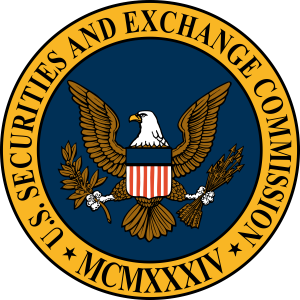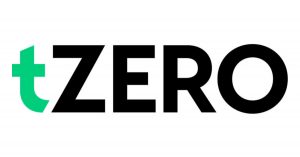 On June 2, 2022, the New York Legislature passed a bill, S6486D, that would place a two-year moratorium on certain new cryptocurrency mining operations at fossil fuel energy plants in New York. The bill would also limit circumstances in which mining operations currently operating at plants in New York would be able to renew the permits or registrations that allow them to operate. However, the bill would not immediately require existing mining operations to cease, and the bill will not become effective unless it is signed by New York Governor Kathy Hochul.
On June 2, 2022, the New York Legislature passed a bill, S6486D, that would place a two-year moratorium on certain new cryptocurrency mining operations at fossil fuel energy plants in New York. The bill would also limit circumstances in which mining operations currently operating at plants in New York would be able to renew the permits or registrations that allow them to operate. However, the bill would not immediately require existing mining operations to cease, and the bill will not become effective unless it is signed by New York Governor Kathy Hochul.
Articles Posted in Distributed Ledger
First-of-Its-Kind Settlement Brings Clarity for Players in Retail Crypto Market
 On February 14, the Securities and Exchange Commission (SEC) announced that it had entered into a settlement with BlockFi Lending LLC, a subsidiary of BlockFi Inc., (collectively BlockFi) over first-of-its-kind charges that BlockFi had failed to register the offers and sales of its retail crypto lending product, BlockFi Interest Accounts (BIAs), and that BlockFi had violated the registration provisions of the Investment Company Act of 1940. The charges and resulting settlement not only provide a path forward for BlockFi, but also provide clearer guidance to all players in the retail crypto market and especially those involved with crypto lending platforms.
On February 14, the Securities and Exchange Commission (SEC) announced that it had entered into a settlement with BlockFi Lending LLC, a subsidiary of BlockFi Inc., (collectively BlockFi) over first-of-its-kind charges that BlockFi had failed to register the offers and sales of its retail crypto lending product, BlockFi Interest Accounts (BIAs), and that BlockFi had violated the registration provisions of the Investment Company Act of 1940. The charges and resulting settlement not only provide a path forward for BlockFi, but also provide clearer guidance to all players in the retail crypto market and especially those involved with crypto lending platforms.
A NFT Primer on Potential IP Ownership Legal Issues
Carolyn Toto recently joined host Joel Simon on his Industry Insights podcast continue the discussion of non-fungible tokens, related IP ownership issues and more.
Joel Simon: Our discussion today is part of a series on non-fungible tokens, known as NFTs. We will take a look at some specific issues that are somewhat unique to NFTs, and try to give you, our listeners, some interesting things to watch out for as you wade into this relatively new space. Carolyn, with the large sums of money involved in many NFT transactions, due diligence and proper transaction execution must be critical factors, yet I’ve heard about buyers getting tripped up on things that, once you hear about them, seem obvious. Can you shed some light on this for us?
Why the CPRA Is a Step Forward for Privacy but a Step Backwards for Blockchain
 Building upon the California Consumer Privacy Act (CCPA), on November 3, 2020, Californians voted to approve Proposition 24: the California Privacy Rights Act (CPRA). The CPRA does not replace the CCPA but rather adds to and modifies the language of the CCPA to strengthen consumer privacy rights and perhaps, in the future, form a basis for General Data Protection Regulation (GDPR) data transfer adequacy. While the CPRA is a landmark legislative accomplishment for privacy rights, it creates new problems for blockchain-based technologies, particularly those provisions regarding the right of correction and principles of data minimization and storage limitation.
Building upon the California Consumer Privacy Act (CCPA), on November 3, 2020, Californians voted to approve Proposition 24: the California Privacy Rights Act (CPRA). The CPRA does not replace the CCPA but rather adds to and modifies the language of the CCPA to strengthen consumer privacy rights and perhaps, in the future, form a basis for General Data Protection Regulation (GDPR) data transfer adequacy. While the CPRA is a landmark legislative accomplishment for privacy rights, it creates new problems for blockchain-based technologies, particularly those provisions regarding the right of correction and principles of data minimization and storage limitation.
The Increasing Embrace of Tokenization in Commercial Real Estate
We’ve written frequently about the distributed ledger technology (DLT) and the blockchain—on the interesting variations of the technology, its ability to bolster other technologies and its potential applications on everything from team giveaways to trading platforms (be they for cryptocurrency or energy commodities). In “Blockchain-Based Tokenization of Commercial Real Estate,” colleague Matt Olhausen examines the real-world application of tokenization—the process of representing a fractional ownership interest in an asset with a blockchain-based digital token—in commercial real estate.
Overstock Rockets to New All-Time Highs on the Back of COVID-19 and Patented Digital Security Trading Platform
 With bitcoin prices rocketing nearly 300% from trough to peak when COVID-19 lockdowns were announced in March 2020 and then relaxed in July 2020, I thought I would revisit a blockchain company we discussed earlier last year to see how it has progressed and been valued by the financial community: Overstock.
With bitcoin prices rocketing nearly 300% from trough to peak when COVID-19 lockdowns were announced in March 2020 and then relaxed in July 2020, I thought I would revisit a blockchain company we discussed earlier last year to see how it has progressed and been valued by the financial community: Overstock.
“Imparted Urgency” for Digital Currencies and the Death Rattle of SAFTs and ICOs
 On the newest episode of Industry Insights podcast, host Joel Simon and Daniel Budofsky discussed digital securities and virtual currencies.
On the newest episode of Industry Insights podcast, host Joel Simon and Daniel Budofsky discussed digital securities and virtual currencies.
Joel Simon: While the world has been busy battling COVID-19, it has been making startling progress in an area that has held a lot of promise but was struggling at times to gain traction—digital securities and virtual currencies. What just a couple of years ago seemed like a Wild West of scams and frauds has quickly been evolving into a mature, efficient alternative of capital raising and trading, that has been embraced by traditional financial institutions and governments alike. With me today to chat about these developments is a leader of our Fintech practice and head of our Derivatives and Structured Products group, Daniel Budofsky.
(Un)making History: ETC, a 51% Attack and How to Change an Unchangeable Blockchain
 Back in January, news of reversed transactions on the Ethereum Classic (ETC) blockchain (little brother to the main Ethereum blockchain) made headlines and raised concerns about blockchain security. The product of a “51% attack,” these transaction reversals allowed some ETC tokens to be spent twice, a cardinal sin in cryptocurrency called a “double spend,” and the exact problem blockchains were invented to solve.
Back in January, news of reversed transactions on the Ethereum Classic (ETC) blockchain (little brother to the main Ethereum blockchain) made headlines and raised concerns about blockchain security. The product of a “51% attack,” these transaction reversals allowed some ETC tokens to be spent twice, a cardinal sin in cryptocurrency called a “double spend,” and the exact problem blockchains were invented to solve.
Drilling for the Blockchain: Energy Commodity Trading Using Distributive Ledger Technology
 The use of blockchain and cryptocurrency platforms continues to evolve and expand into new markets. We recently highlighted the new patent issued to tZERO covering blockchain-based methods and systems to trade “digital transactional items,” so it should be no surprise that another company—UK-based VAKT—has developed a blockchain platform for energy commodity trading.
The use of blockchain and cryptocurrency platforms continues to evolve and expand into new markets. We recently highlighted the new patent issued to tZERO covering blockchain-based methods and systems to trade “digital transactional items,” so it should be no surprise that another company—UK-based VAKT—has developed a blockchain platform for energy commodity trading.
Blockchain Goes Wall Street – New Issued Patent Covers Cryptocurrency Trading Platform
 With bitcoin prices rising from the dead over the last few weeks (up nearly 25% from a December 14 low), there’s a degree of renewed excitement regarding blockchain and cryptocurrency. But as general public interest rises and falls, the steady process of creating useful applications and systems for distributed ledger technology continues. The issuing of new patents is one observable part of this process, and as such, it’s worth noting that trading platform tZERO, a portfolio company of the e-commerce giant Overstock, was recently awarded a patent outlining how it may merge legacy trading systems with cryptocurrencies and digital asset technology.
With bitcoin prices rising from the dead over the last few weeks (up nearly 25% from a December 14 low), there’s a degree of renewed excitement regarding blockchain and cryptocurrency. But as general public interest rises and falls, the steady process of creating useful applications and systems for distributed ledger technology continues. The issuing of new patents is one observable part of this process, and as such, it’s worth noting that trading platform tZERO, a portfolio company of the e-commerce giant Overstock, was recently awarded a patent outlining how it may merge legacy trading systems with cryptocurrencies and digital asset technology.
 Internet & Social Media Law Blog
Internet & Social Media Law Blog


